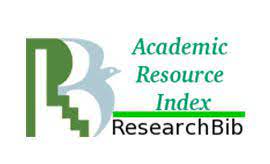THE ROLE AND PLACE OF PEER ASSESSMENT IN TEACHING TECHNICAL SPECIALTY STUDENTS
DOI:
https://doi.org/10.51707/2618-0529-2022-24-08Keywords:
educational process, assessment, peer assessment.Abstract
The paper considers the possibility of implementing peer assessment of students in the educational process as a tool to improve the quality of the educational process. For better understanding the peculiarities of teaching students in technical fields, an overview of the educational process in the specialty 186 Publishing and Printing. The peculiarities of this specialty include the widespread use of information technology, a large number of laboratory works, the complexity of using unified tests to assess student performance due to the complexity of tasks, a wide variety of online courses that can be used in teaching, and students’ ability to work on real projects. Given the specifics of the specialty and the needs of students who are associated with the desire to receive quality feedback to improve the quality of work performed it is proposed to use peer assessment as a tool to control knowledge and enhance students’ cognitive activity. The peer assessment broadens students’ thinking horizons by involving them in active learning by providing tools to track their own progress, and allows students to gain experience in evaluating work done. On the other hand, the introduction of the peer assessment can be complicated by insufficient motivation of students, which poses new challenges to teachers. Also, all forms of the peer assessment should be properly organized to maximize the benefits of its use. In general, provided peer assessment, which is properly implemented, looks like a promising tool for improving the quality of the educational process. As prospects for further research, it is recommended to conduct a study among students on the effectiveness of feedback and peer assessment.
References
Nicol, D. (2010). From monologue to dialogue: improving written feedback processes in mass higher education. Assessment & Evaluation in Higher Education, 35 (5), 501–517.
Orrell, J. (2006). Feedback on learning achievement: rhetoric and reality. Teaching in Higher Education, 11 (4), 441–456.
Bashir, Md Mamoon. (2016). The Value and Effectiveness of Feedback in Improving Students’ Learning and Professionalizing Teaching in Higher Education. Journal of Education and Practice.
David J. Nicol & Debra Macfarlane‐Dick (2006) Formative assessment and self‐regulated learning: a model and seven principles of good feedback practice, Studies in Higher Education, 31:2, 199–218. DOI: https://doi.org/10.1080/03075070600572090
O’Donnell, A. M., & Topping, K. J. (1998). Peers assessing peers: Possibilities and problems. In Topping, K. & Ehly, S., Peer-assisted learning (pp. 255– 278). Mahwah, NJ : Lawrence Erlbaum.
Topping, K. (2017). Peer Assessment: Learning by Judging and Discussing the Work of Other Learners. Interdisciplinary Education and Psychology, 1 (1), 1–17. DOI: https://doi.org/10.31532/InterdiscipEducPsychol.1.1.007
Lutze-Mann, L. (2015). Peer Assessment of Assignment Drafts: About Peer Assessment. Assessment Toolkit, Student Peer Assessment. Retrieved from https://teaching.unsw.edu.au/peer-assessment
Ross, J. (2006). The Reliability, Validity, and Utility of Self-Assessment, Practical Assessment Research & Evaluation, 11 (10), 1–13.
Spiller, D. (2009). Assessment Matters: Self-Assessment and Peer Assessment. Teaching Development, The University of Waikato. Retrieved from http://www.waikato.ac.nz/tdu/pdf/booklets/8_SelfPeerAssessment.pdf
Alzaid, Jawaher. (2017). The Effect of Peer Assessment on the Evaluation Process of Students. International Education Studies. 10, 159. DOI: https://doi.org/10.5539/ies.v10n6p159.
Downloads
Published
How to Cite
Issue
Section
License
Copyright (c) 2022 Scientific notes of Junior Academy of Sciences of Ukraine

This work is licensed under a Creative Commons Attribution 4.0 International License.













